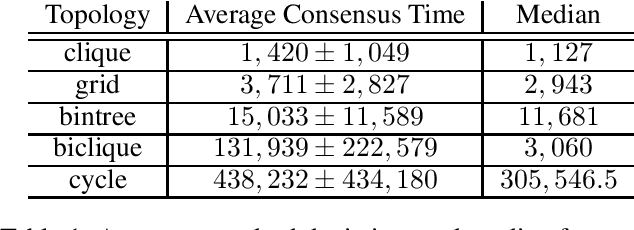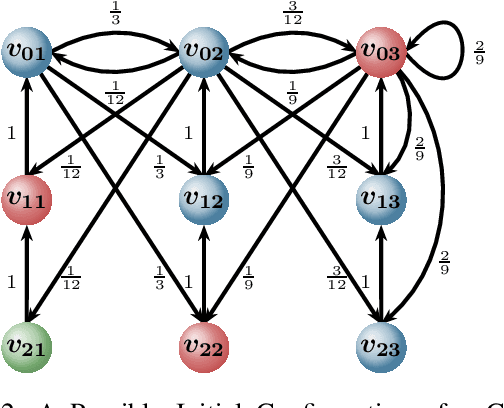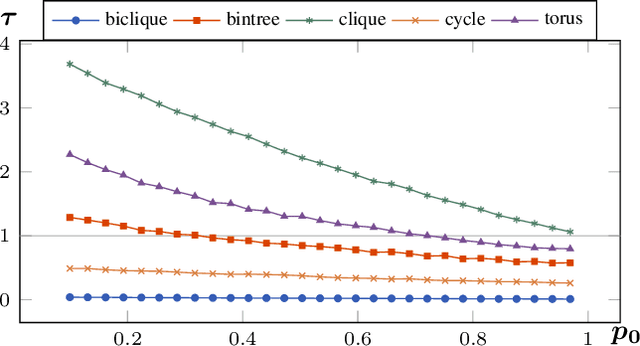The Influence of Memory in Multi-Agent Consensus
Paper and Code
May 10, 2021



Multi-agent consensus problems can often be seen as a sequence of autonomous and independent local choices between a finite set of decision options, with each local choice undertaken simultaneously, and with a shared goal of achieving a global consensus state. Being able to estimate probabilities for the different outcomes and to predict how long it takes for a consensus to be formed, if ever, are core issues for such protocols. Little attention has been given to protocols in which agents can remember past or outdated states. In this paper, we propose a framework to study what we call \emph{memory consensus protocol}. We show that the employment of memory allows such processes to always converge, as well as, in some scenarios, such as cycles, converge faster. We provide a theoretical analysis of the probability of each option eventually winning such processes based on the initial opinions expressed by agents. Further, we perform experiments to investigate network topologies in which agents benefit from memory on the expected time needed for consensus.
 Add to Chrome
Add to Chrome Add to Firefox
Add to Firefox Add to Edge
Add to Edge